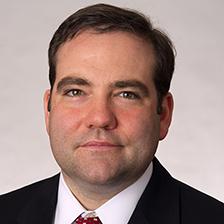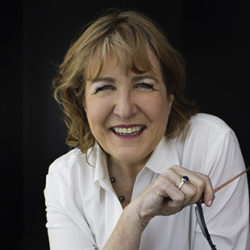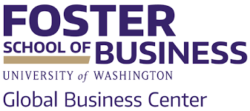The Future of Work
February 6th, 2020 5:30PM -7:00PM
The world of work—both in rich and poor countries—is evolving rapidly. Technology, globalization, environmental changes, and shifting demographics are impacting workplace environments and the types of jobs that will be available in the future.
Although U.S. policymakers and citizens are rightly concerned about the future of work and employment at home, generating employment abroad is vital to U.S. national security interests and will be neglected at serious cost to the United States. If developing countries cannot create jobs and meet the economic aspirations of their people, this could impact our domestic economic health, national security, and future global stability in the form of fewer customers for U.S. goods and services, an increased vulnerability of youth to unproductive, extremist, or illegal activities, and more people migrating to look for better economic opportunities.
Further, in developing countries, technology changes need to be evaluated in a larger context that includes multiple work-related challenges and opportunities such as exploding youth bulges, high informality, resource constraints, and urbanization.
Join the World Affairs Council and Daniel Runde, Senior Vice President and Director of the Project on Prosperity and Development at the Center for Strategic and International Studies, for a timely discussion on these issues on February 6th.
Digital copies of a two-volume report on Dan’s previous work on the world of work in developing countries can be found here.
About the Speaker
 Daniel F. Runde is senior vice president, director of the Project on Prosperity and Development, and holds the William A. Schreyer Chair in Global Analysis at CSIS. A global thought leader and change agent, his work centers on leveraging U.S. soft power and the central roles of the private sector and good governance in creating a more free and prosperous world. Mr. Runde has been recognized for influencing the debate on USAID-State Department relations, as an architect of the BUILD Act, and led the debate surrounding the role and future of the World Bank Group. Mr. Runde has also influenced thinking about U.S. economic engagement with Africa (of which he is in favor of much more) and domestic resource mobilization. Mr. Runde holds the Officer’s Cross in the Order of Isabel la Católica, a Spanish Civil Order.
Daniel F. Runde is senior vice president, director of the Project on Prosperity and Development, and holds the William A. Schreyer Chair in Global Analysis at CSIS. A global thought leader and change agent, his work centers on leveraging U.S. soft power and the central roles of the private sector and good governance in creating a more free and prosperous world. Mr. Runde has been recognized for influencing the debate on USAID-State Department relations, as an architect of the BUILD Act, and led the debate surrounding the role and future of the World Bank Group. Mr. Runde has also influenced thinking about U.S. economic engagement with Africa (of which he is in favor of much more) and domestic resource mobilization. Mr. Runde holds the Officer’s Cross in the Order of Isabel la Católica, a Spanish Civil Order.
Previously, Mr. Runde held senior leadership roles at the International Finance Corporation (IFC). From 2005 to 2007, he was director of the Office of Global Development Alliances (GDA) at the U.S. Agency for International Development (USAID), and he led the GDA partnership initiative by providing training, networks, staff, funds, and advice to establish and strengthen public-private partnerships. His efforts at USAID leveraged $4.8 billion through 100 direct alliances and 300 others through training and technical assistance.
Mr. Runde is the chairman of the Advisory Committee on Voluntary Foreign Aid (ACVFA), and he also serves as the chair of the Sub-Saharan African Advisory Committee for the Export-Import Bank of the United States (EXIM). He also serves on the board of the International Foundation for Electoral Systems (IFES), the Millennium Challenge Corporation (MCC) Advisory Council, the Western NIS Enterprise Fund (WNISEF), and the Ashesi University Foundation (a private university located in Accra, Ghana). Mr. Runde is also a lifetime member of the Council on Foreign Relations (CFR) as well as a member of Bretton Woods. Mr. Runde is a regular contributor to The Hill and hosts a podcast series, Building the Future with Dan Runde: Freedom, Prosperity, & Foreign Policy.
About the Moderator

Maura O’Neill is a lecturer and distinguished teaching fellow at the Haas School of Business. Relentlessly focused on sourcing and scaling breakthrough ideas, she has been thrilled to grow businesses, teach, and mentor others wanting to make a big difference. In 2009 she was appointed by President Obama to be the first Chief Innovation Officer of the U.S. Agency for International Development. Serving until 2013, she was responsible for inspiring and leading breakthrough innovations in foreign assistance and development worldwide. Read More
This program is sponsored by the Global Business Center
at the Foster School of Business

The venue sponsor for this program is Foster Garvey

The Boeing Company is an underwriting sponsor of all World Affairs Council Community Programs.
